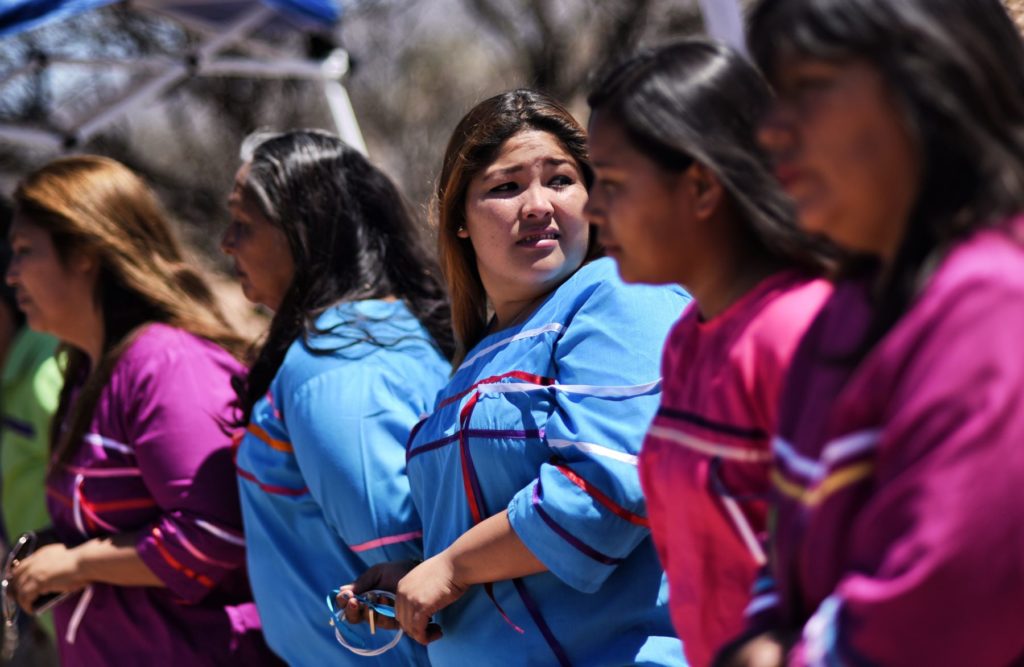Politics
A Native American Burial Ground Is Being Desecrated to Make Way for Donald Trump’s Border Wall
Construction on the border wall threatens more than 20 sites across Arizona.

Construction on the border wall threatens more than 20 sites across Arizona.

Tanner West

A Native American burial ground along the US–Mexico border is under threat of destruction as President Donald Trump presses forward with plans to build a border wall separating the two countries.
Construction crews in Arizona have begun blasting away boulders and cutting down cacti in an area directly abutting a Tohono O’odham Nation burial site, which at least a dozen Native American nations claim a connection to, according to Arizona representative Raúl M. Grijalva.
The area “is a sacred site to the O’odham and other indigenous people,” Grijalva told CNN. “And it’s quite literally being blown up so Trump can build the border wall across this mountain… It’s just heartbreaking to watch.”
“The controlled blasting is targeted and will continue intermittently for the rest of the month,” a spokesperson for the US border agency told the Arizona Republic.
According to a Washington Post report from September, there are 22 important sites in Arizona’s Organ Pipe Cactus National Monument that the National Park Service fears could be demolished or damaged as the border wall is erected. The park is recognized by UNESCO as a precious biosphere preserve and includes around 330,000 acres of land.
Earlier this year, construction workers discovered a human bone in the park that was later dated to between 300 and 1500 AD.
I just got back from the border.
This week, Trump blew up a sacred Native American hill on public land to build his racist wall.
Watch my new update and join the growing movement to stop the wall. #NoBorderWall pic.twitter.com/YgmS94vAwO
— Raul M. Grijalva (@RepRaulGrijalva) February 9, 2020
But the Trump administration has waived American laws protecting such sites—and the endangered species that live on them—in accordance with the REAL ID Act, a 2005 law that allows the federal government to disregard legislation that is deemed to be in conflict with US security policy.
Grijalva, who visited the area in January ahead of the demolition, sent a letter to the head of the US Department of Homeland Security, Chad Wolf, urging him to speak to O’odham representatives before any work was carried out.
“Members of the Tohono O’odham Nation recently informed me that the Department of Homeland Security is not respecting tribal lands and sacred sites as they proceed with border wall plans and construction,” he wrote last month.
“I strongly urge [the department[ to conduct meaningful government-to-government consultation with the Tohono O’odham Nation about the DHS’s planned border wall construction.”
But that conversation never took place, Grijalva now says.
“There has been no consultation with the nation,” Grijalva told CBS News. “This administration is basically trampling on the tribe’s history—and to put it poignantly, its ancestry.”